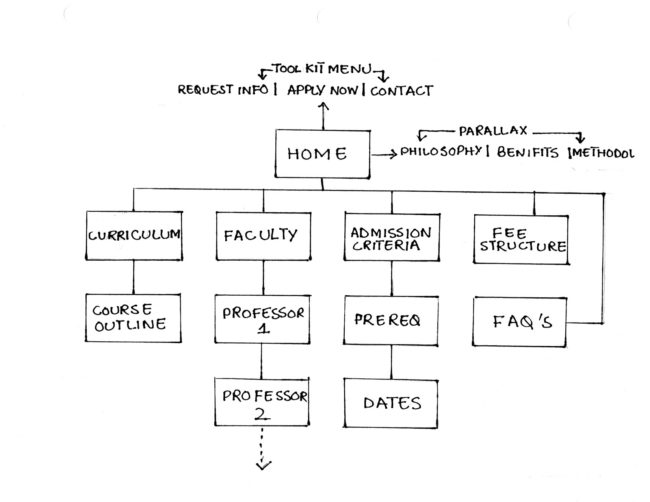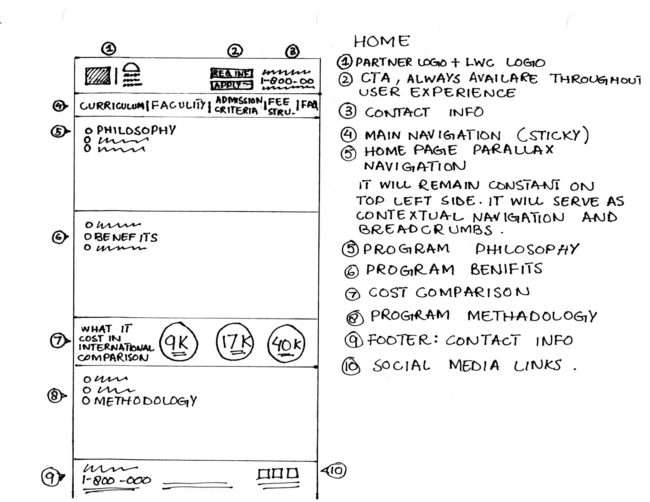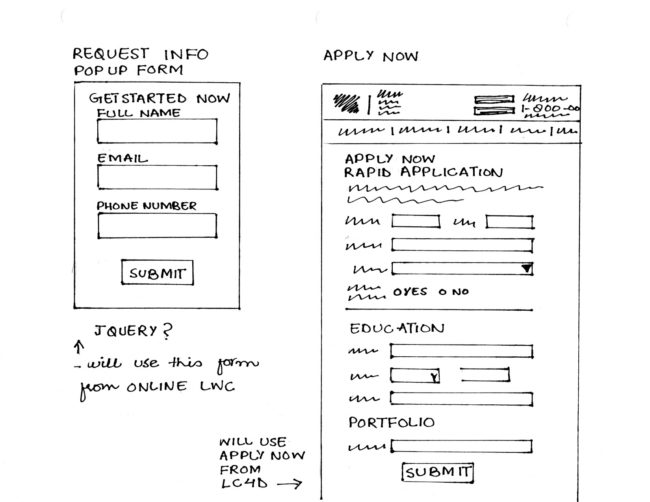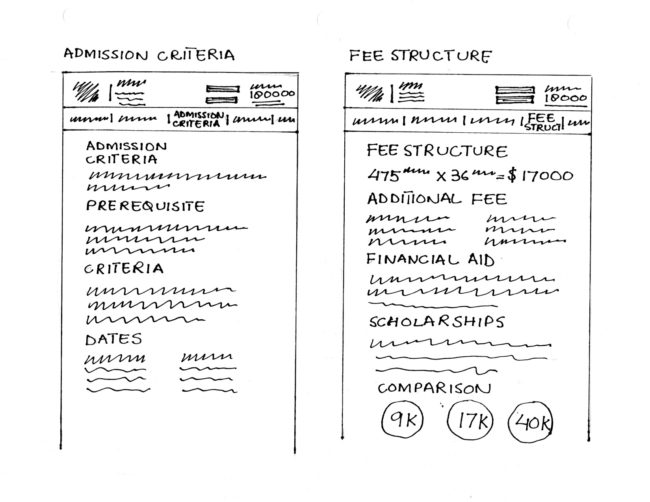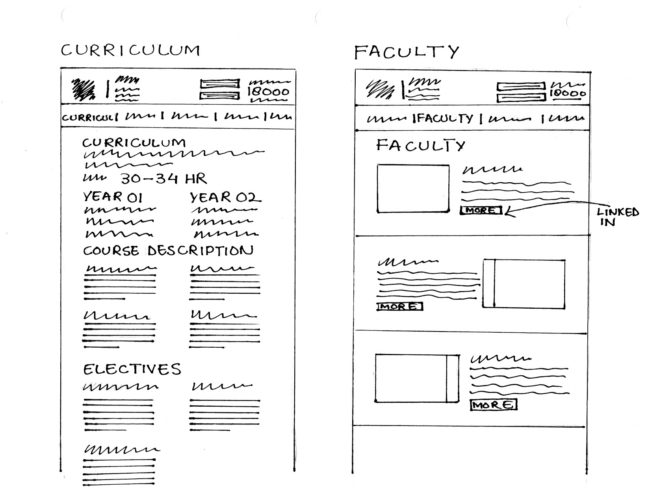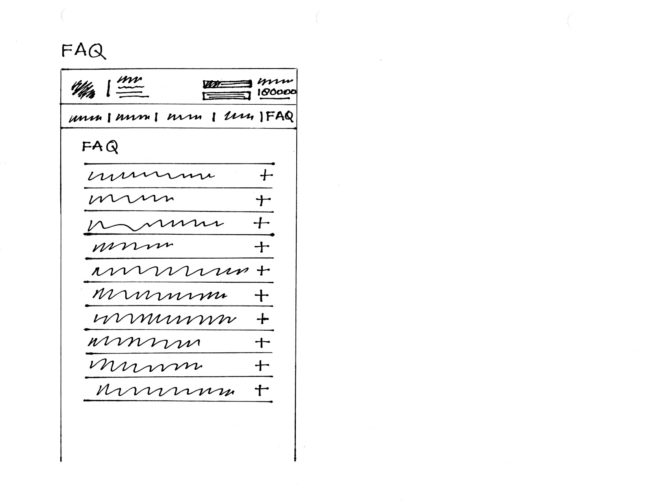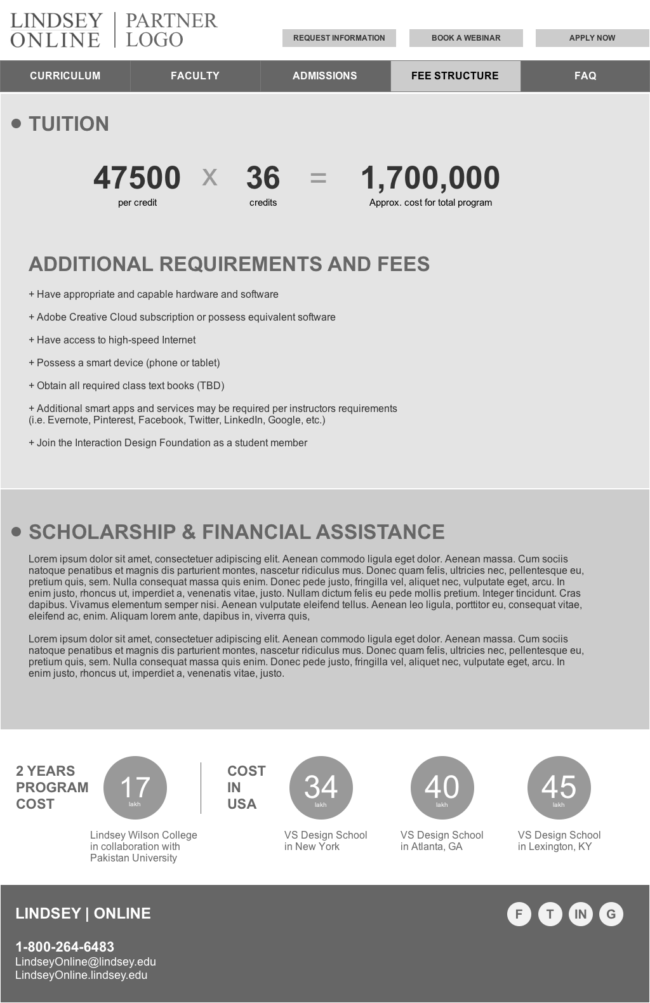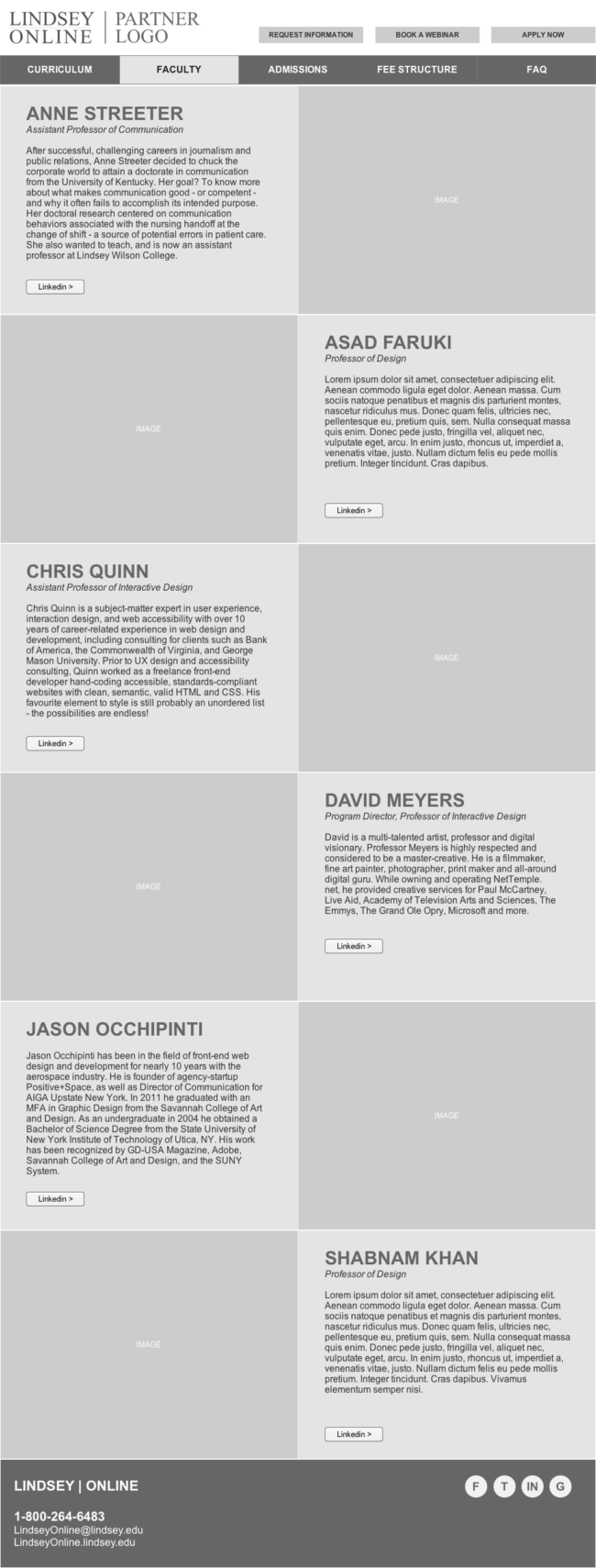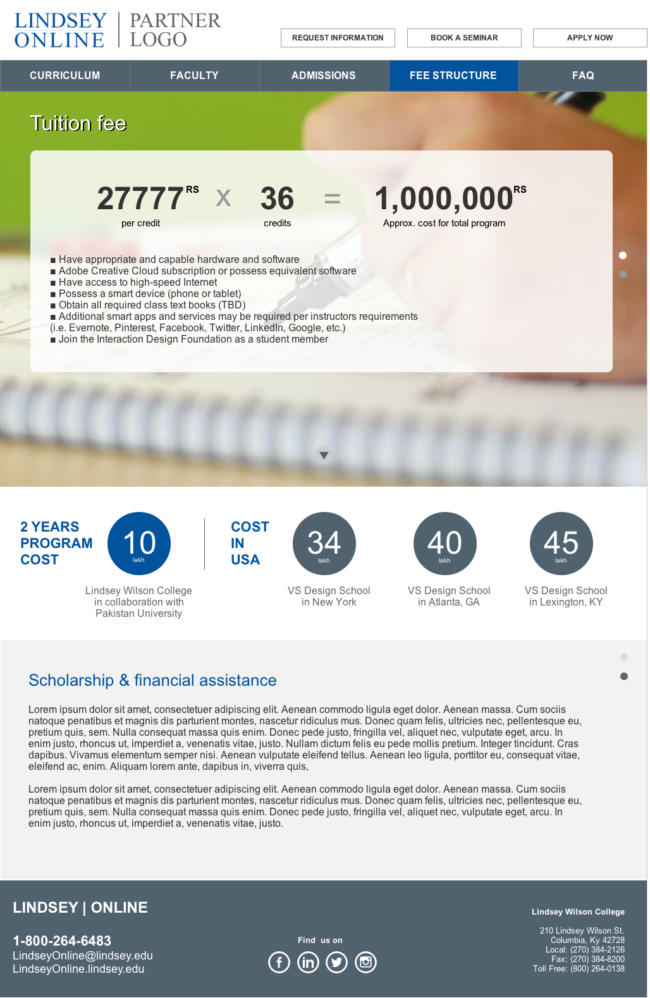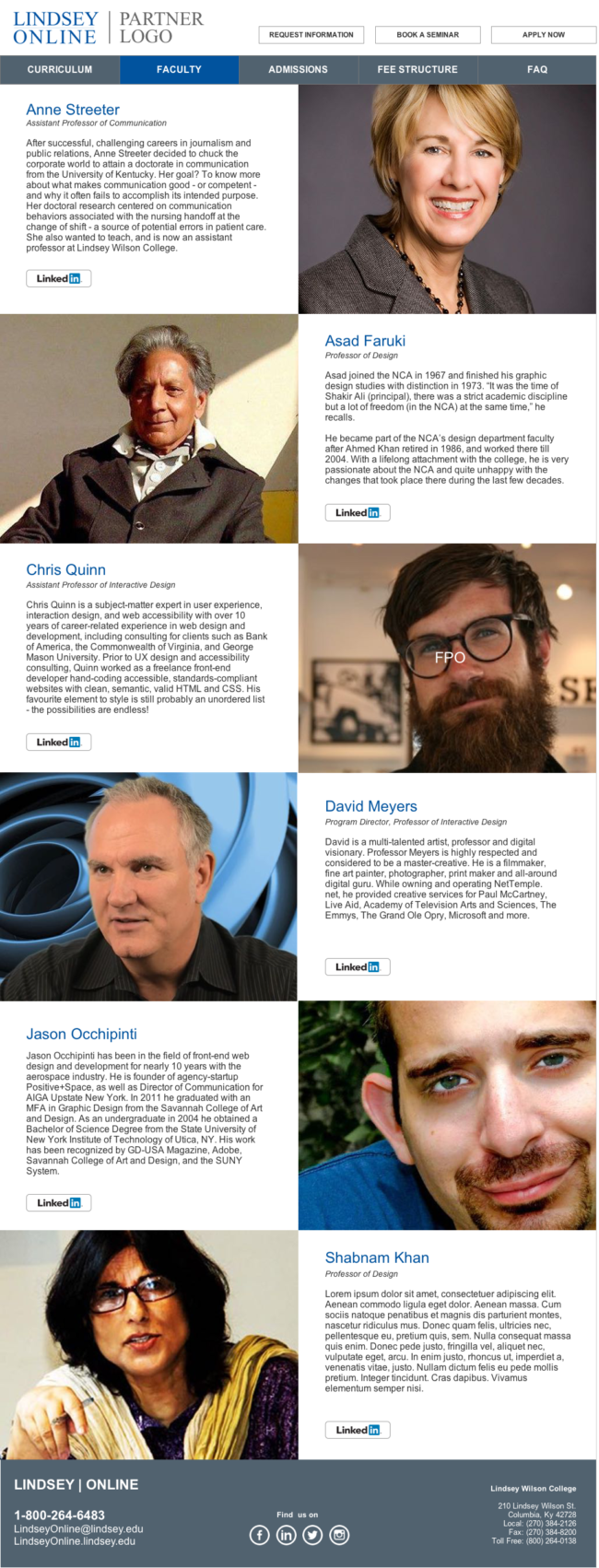The International M.A in UX Design
Concept Brief
Hypotheses
Option 1: LWC and in-country university collaboration (high cost)
Under the umbrella of the LWC program and in collaboration with an international university in Pakistan, we will offer a combined accredited degree. This will also involve a partnership with a local education authority, The Higher Education Commission of Pakistan (HEC), and LWC’s accrediting body, the Southern Association of Colleges and Schools Commission on Colleges (SACSCOC).
Hybrid classes:
The hybrid program will break cultural myth 01 (see below) regarding long distance online programs.
I believe this program should be a combination of localized classroom-based courses and online classes out of dedicated conference rooms, which will increase credibility and reduce costs.
This hybrid program will utilize the existing LWC course outline available at Canvas. Students active within exchange programs will have the opportunity to enroll via self-finance and with the help of available scholarships. A country program director representing LWC will be present on-site to attract students, teach some courses, manage local resources and oversee the quality of the education according to the college’s accreditation standards.
Unique selling points:
• US-accredited degree
(Insight: Preferred by university management and prospective students in Pakistan)
• Course outline and material developed by US professors and working professionals
• International instructors
• On-campus help; local instructors and advisor available on campus
• Traditional classroom courses
• Conference rooms for online lectures
• Co-op programs through strategic alliance with local industry
• International collaboration of ideas and education
Cultural Myth 01: Pakistani people do not consider long distance online degree programs a means of quality education, especially among our targeted audience. The cost of the program will position us alongside high-quality institutes, and the hybrid online-classroom format will help combat the cultural myth.
*This insight was validated through expert’s interview and market survey as discussed later in this case study.
Option 2: Stand-alone University in Pakistan (low-cost)
The hybrid program will appropriate LWC’s program outline for non-profit education in a developing country. As a non-profit organization, LC4D will help implement the course material and bring on international instructors without concern for U.S accreditation standards, limitations and high costs. The program will only offer a local Pakistan HEC accredited degree.
A country program director will be on-location to attract students, teach some courses, coordinate with local contacts and oversee the quality of education.
Unique selling points:
• Pakistan HEC accredited degree
• International course outline
• International & local instructors
• Local advisor available on campus
• Traditional classroom courses
• Conference rooms for online lectures
• Co-op programs through strategic alliance with local industry
• International collaboration of ideas and education
Option 3: Stand-alone LWC international campus
This option would launch the program without local collaboration with LWC’s country branch office in Lahore. The program will run entirely online.
The country program director will implement a branch office to attract students, teach some courses and monitor the quality of education in Pakistan.
Unique selling points:
• US accredited degree
• International course outline
• International instructors
• International collaboration of ideas and education
• Easy setup, no partnership required
My Role
The Journey
Research
I collected critical information about business needs, multicultural behaviors and market attributes through qualitative research involving interviews with customers, stakeholders and subject matter experts. Quantitatively, I performed target audience surveys and a detailed competitive analysis.
Define
After researching and analyzing market demographics and behaviors, I created primary and secondary personas, Sara and Faris, who are looking for a credible UX degree program within in their home country, Pakistan. My challenge was to utilize the research I obtained to design an education program that will fulfill Sara and Faris’s needs.
Primary Persona
“I’ve worked really hard throughout school with my family’s support and I am looking forward to pursuing a career in UX design. I wish there was a UX degree program available in my country so I wouldn’t have to travel so far from home.”
Sara Ali
Secondary Persona
“I want to improve my current UX skillset so I can join a big corporation and be a part of a team that will allow me to put my interactive creative vision into action on a daily basis.”
Faris Khan
Ideate
I used rough iterative concept sketches to share ideas with The Galleria’s stakeholders.
Website attributes that emphasize user-centric design:
• Homepage features highlights of the Master of Arts Degree in User Experience Interactive Design program
• Additional information is found via intuitive navigation affordance, which offers predictability to users
Solution Design
I developed a medium fidelity wireframe prototype to effectively bridge raw creative thoughts to final product features for review and evaluation. Defining content and system functionality was achieved through quick wireframe prototypes bridging raw creative thoughts to the final product, validated by the following usability studies and results were applied to visual design mockup to bring the solution to life.
Validation
I validated the website design through usability studies, user interviews, moderated and unmoderated user testing, and analytics aimed to accurately track online selections and customer behavior on mission-critical tasks. The ultimate goal of the validation assessment is to determine if any significant usability issues exist.
Research outcomes
Recommendations
Based on the research data found for the proposed hypotheses, I recommend the following:
Option 1: LWC and in-country university collaboration.
I believe this is the best possible solution. This program offers the best of both worlds – classroom-based courses led by local instructors backed by Pakistan’s reputable university, as well as online classes led by international instructors with North American endorsement.
The program serves a niche market and its estimable credentials mitigate potential cultural bias against online-based courses.
Option 2: Stand-alone University in Pakistan that appropriates LWC’s program outline for non-profit education in a developing country.
This option is both doable and very attractive in terms of affordability.However, without international accreditation, it will lose credibility.
As a non-profit organization, LC4D will help implement the course material and bring on international instructors without concern for the limitations and high costs of U.S accreditation. This non-profit program will pay a franchise fee to LWC on an annual net-asset basis, which both it and Pakistan’s university accept.
Option 3: Stand-alone LWC international campus in Pakistan.
This option is not recommended based on findings. A partnership with a reputable local university is necessary to give LWC credibility within Pakistan due to its lack of an established reputation among the country’s population. Otherwise, the challenge of selling a $20,000 online degree program to the target audience will be insurmountable.
Through research, I discovered that Dubai’s unique demographics may make for an alternative market in which to unveil such online programs. However, further research is necessary to explore this potential opportunity.
Limitations
Extending LWC’s Master of Arts Degree in User Experience Interactive Design program to Pakistan involves certain challenges and limitations, which I view as opportunities. Additionally, there are multiple potential risks in entering the global market in general and, more specifically, the market within a developing country. However, these obstacles are not impossible to overcome.
Low-cost fee structure of a developing country
Charging a lower fee for attendance may be mitigated by utilizing low-cost local resources (as described above with reference to the proposed hybrid program), as well as by a large number of students in attendance, which is not impossible in a densely populated country like Pakistan.
Meeting LWC’s (SACSCOC) accreditation standards
Appointing a country program director (also a LWC employee) in Pakistan to oversee the quality of foreign adjunct professors at partnering schools may help ensure established standards are met.
Receptiveness of local infrastructure and availability of essential resources (i.e. electricity, technological equipment, high-speed Internet, classrooms and conference rooms)
The program director and partner university will collaborate to utilize the partner university’s current resources, following pre-contract confirmation that essential resources are available.
Language/accent barriers
Online instructors will need to show empathy and communicate according to the needs of their target audience. While students in Pakistan speak English, the differences in accents among students and faculty could potentially create communication and comprehension issues, if not properly addressed.
Navigating differences in local bureaucracy and legal procedures
Thorough knowledge of legal resources and having local representatives available to assist with in-country networking may help alleviate bureaucratic challenges.
Meeting Higher Education Commission (HEC) of Pakistan’s accreditation standards
The program director will work with Pakistan’s authorities to resolve potential obstacles.
Time zone differences
LWC will ensure availability of online instructors for all applicable time zones.
Budget for initial investment, resourcing, marketing and advertising
A significant initial investment for resourcing, marketing and advertising is required for a successful program launch. The partner university will help with marketing, advertising and sourcing investors locally, while LWC will need to solicit foreign investors.
Conclusion
This report documents an analysis of LWC’s extension of its Master of Arts Degree in User Experience Interactive Design program to the global market, specifically Pakistan. The competitive analysis, industry expert interviews, and target audience survey results indicate market receptivity. It is the responsibility of LWC to perform a thorough business analysis to effectively address financial considerations.


